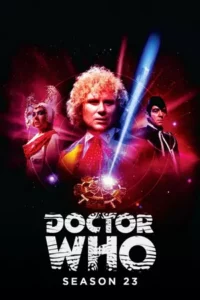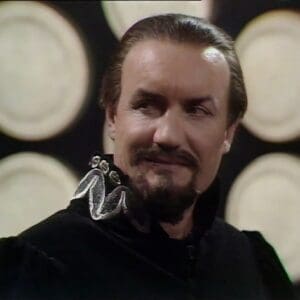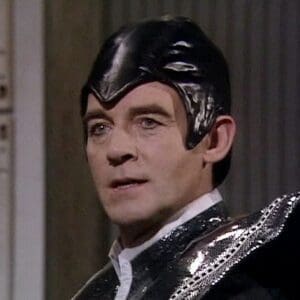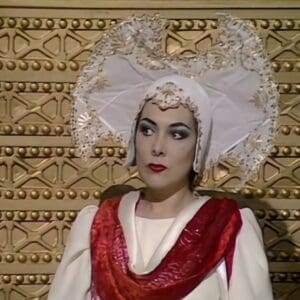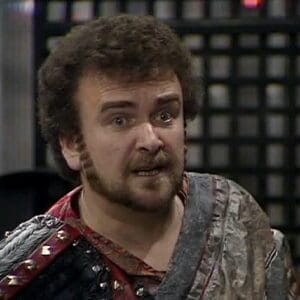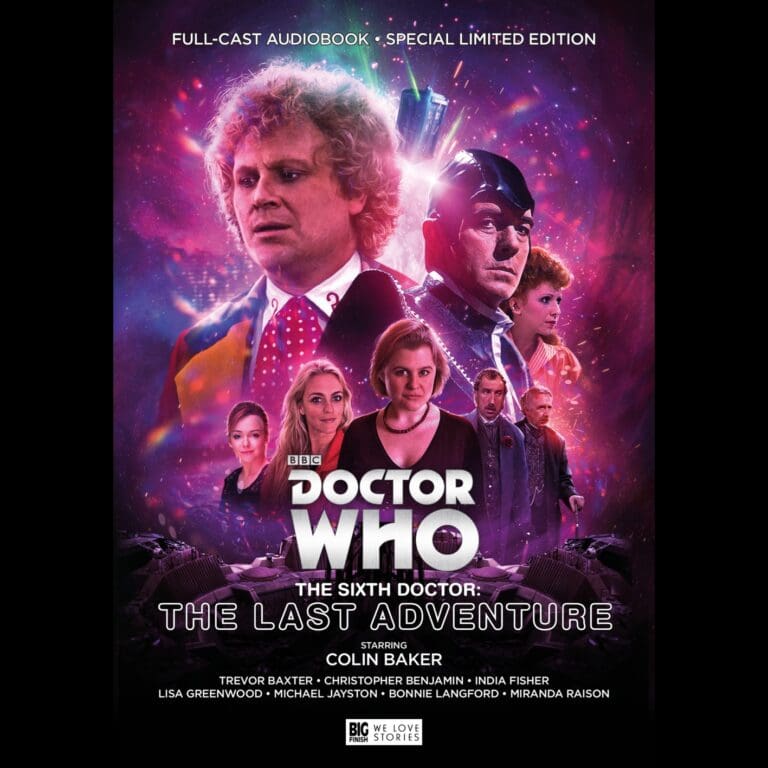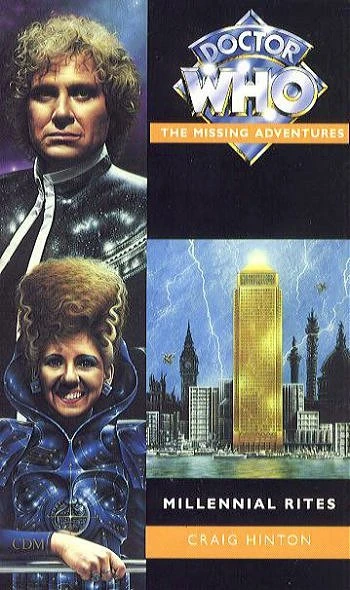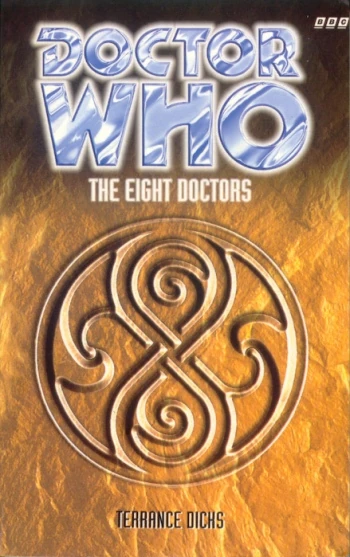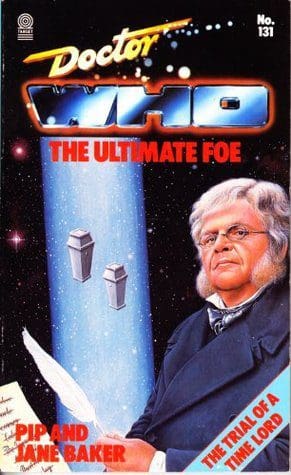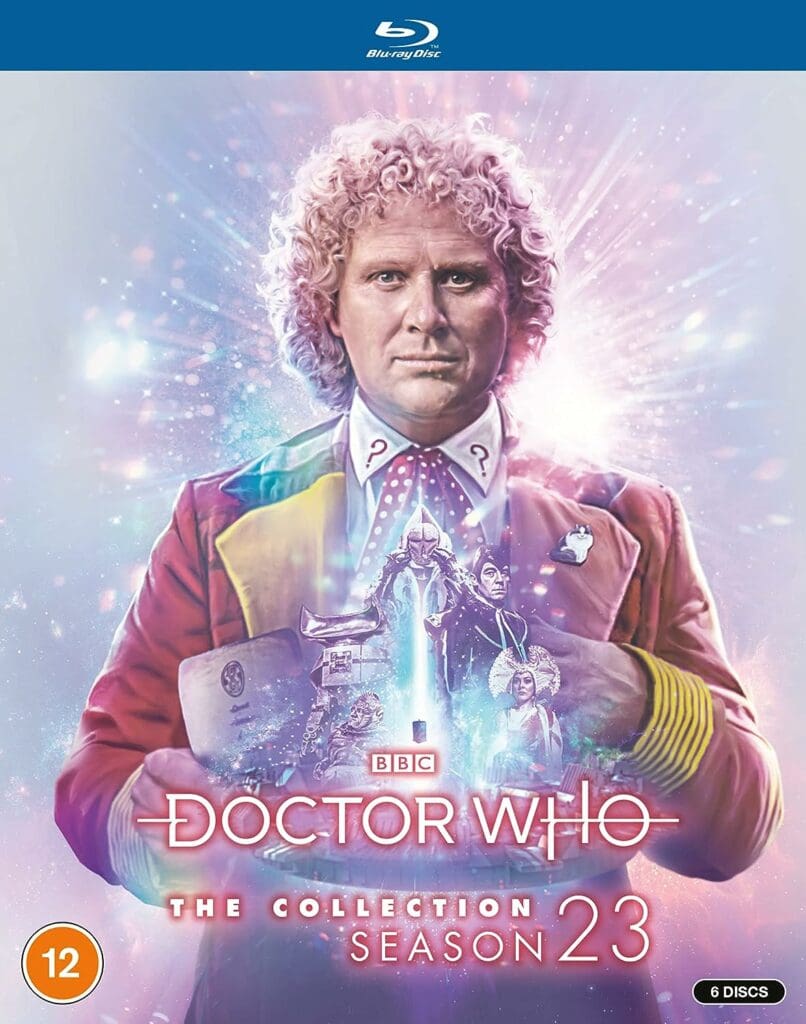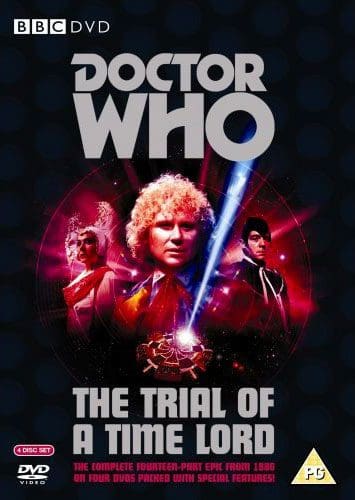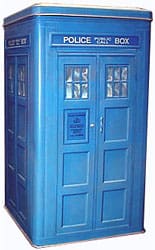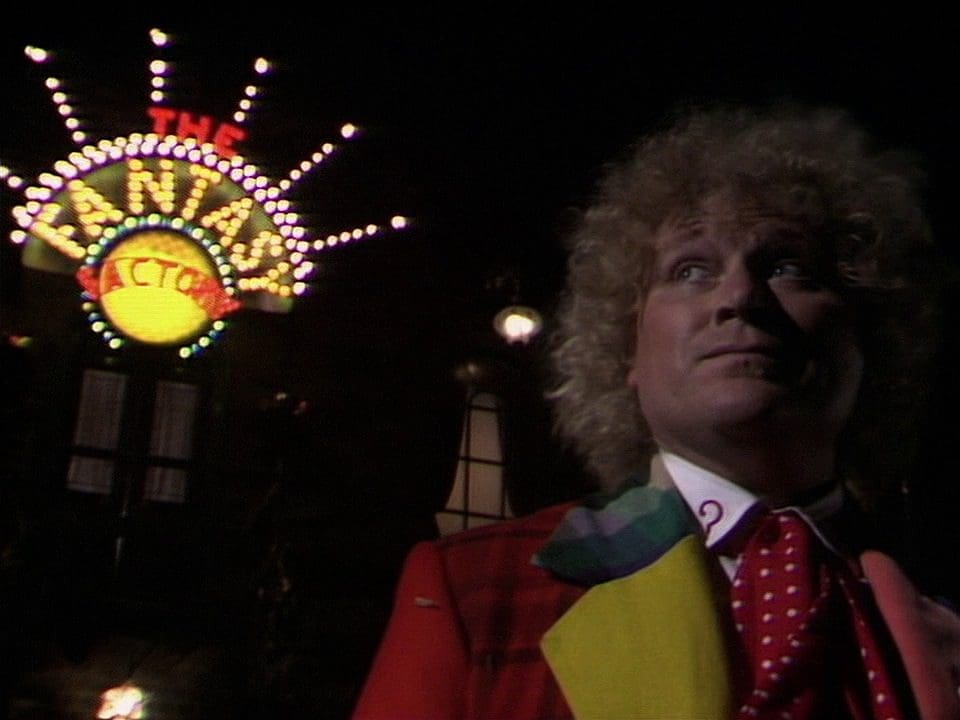
Classic Who S23 • Serial 4 · (2 episodes)
The Ultimate Foe
Reviews and links from the Community
This review contains spoilers
Review of The Ultimate Foe by thedefinitearticle63
Previous Story: Terror of the Vervoids
Quite possibly my favourite Classic season finale. It's so ridiculous and thrilling that I can't help but enjoy it. It ties up the entire season perfectly. The first episode starts incredibly strong and the fact that the Master showing up was as cathartic as it was, is a testament to just how good of a villain Michael Jayston's Valeyard is. It really ups his credibility as a villain when even a villain as good as the Master hates him. The reveal that the Valeyard is actually a future version of the Doctor was a lot better than I expected it to be. I'd heard about it before and thought it was silly and pointlessly included but it doesn't feel like that at all after watching it. It certainly doesn't "break canon" in any way either.
The scenes inside the Matrix were very evocative of The Deadly Assassin, another story with a lot of themes of Time Lord corruption. In fact I'd say all the Time Lord stories since then have been building up to this story. You could argue that this starts all the way back in The War Games in fact. Sabalom Glitz's role in the story felt a bit out of place, but I'm not complaining because I think he's quite a fun character. It did start to feel a bit rushed by the end of the second part, especially with the Master sub-plot. I do wish he'd taken a smaller role or atleast for once not an entirely evil one. Overall, an incredibly epic finale to one of the most modern-feeling and enjoyable seasons in all of Classic Doctor Who.
Next Story: The Wormery
This review contains spoilers
Review of The Ultimate Foe by greenLetterT
The Ultimate Foe feels like they took the Toymaker plot line that never was (after they nearly cancelled Doctor Who) and gave it to the Valeyard. The Evil Court Room GuyTM all of a sudden becomes this joker figure with circus music and echoing laughter. It's an odd move that doesn't really work.
Also, somehow they managed to fridge Peri and shove her in a random marriage, in that order. Almost impressive, if it didn't wind me up so much
This review contains spoilers
Review of The Ultimate Foe by WhoPotterVian
The classic series of Doctor Who didn't really deal with series finales. Bar maybe The Key To Time, the last serial of a classic series season would instead tend to be a standalone adventure, wrapping up its own individual plot rather than an entire over-arching narrative. It's a style that proved to work well time and time again for the classic series, and so it's no surprise that they largely maintained this approach.
'The Ultimate Foe' is a different beast. It follows the line of thinking we have seen more with the new series, acting as a conclusion to the Trial Of A Time Lord arc rather than just another Doctor Who adventure. It's an approach that works significantly well for it, as it plays more with the format of the courtroom proceedings, finally giving us witnesses from the Doctor's previous stories this season. We get o see Glitz (Tony Selby) again, and we're reunited with Mel (Bonnie Langford). It's a really effective way to establish these past stories in further with the 'Trial' storyline, as they become an integral part in solving the Doctor's conflict with the Valeyard (Michael Jayston).
The Mysterious Planet in particular is revealed to have a very strong link to the events of the courtroom trial, as we learn the reason why Earth was renamed 'Ravalox', and discover that the High Council of Time Lords were behind the solar flares that almost destroyed the planet. This leads to arguably Colin Baker's greatest performance in the classic series, as he scolds his own species for their part to play in the disaster that befell the Earth. The writing by Robert Holmes and Eric Saward here is so beautiful that feels like pure poetry, as the Doctor declares that Daleks, Cybermen and the other monsters he has encountered are 'still in the nursery' compared to them. It's undoubtedly the strongest the writing had ever been during Colin Baker's era, and it's a crying shame that the rest of his time in the TARDIS hadn't featured writing quite as magnificent as this.
This serial also sees the return of Anthony Ainley's Master, and he's on excellent form here. Whether it's on the video screen in the courtroom or aiding the Doctor and Glitz in the Matrix, he brings exactly the same huge amount of screen presence as you would expect from this incarnation of the Doctor's Time Lord nemesis. The best thing about his appearance here however is how it subverts expectations. Naturally as a viewer you expect him to be the man behind the manipulation of the Matrix, and the one trying to get the Doctor sent down for genocide, but for once the Master isn't out to get the Doctor. He takes up more of an ally role here, assisting the Doctor in trying to take down the Valeyard, the real culprit behind the corruption of the Matrix. I'm glad the story refrained from going down the obvious route, as it allows for a new central conflict to form.
Many have spoken about just how brilliant of an idea the Valeyard is, an amalgamation of the Doctor who comes somewhere between his twelfth and final incarnation. He makes for this really intriguing premise, as his origins, where he comes from and how he was formed is kept so deliberately vague. Thirty five years, and we're all still hooked trying to figure out more about this enigmatic figure, and when he will next appear in the series. That right there is a clear cut sign of good writing. If a piece of TV is so talked about and discussed many years later, then quite clearly it has done something right, and it's a crime that the Valeyard is yet to return on TV.
The majority of the Valeyard's scenes take place within the Matrix, and these scenes demonstrate such a wild amount of creativity and imagination. Whether it's the Doctor being pulled into the sand, grabbed by a pair of hands as he peers into a barrel of water or encountering 'Mr Popplewick', who is obsessed with 'procedure', there are so many impressive sequences here that demonstrate the limitless scope and scale of a show like Doctor Who. It's almost like watching a David Lynch movie mixed with Alice In Wonderland, in the way that it embraces the weird whilst openly acknowledging that none of it makes sense. As the Doctor states, 'The only logic is that there's no logic'.
If there's any criticism I could level at this serial, it's that it short-changes both of the Doctor's companions. Firstly, we are told by the Inquisitor (Lynda Bellingham) that Peri actually survived the events of Mindwarp, and is living happily with King Yrcanos. Pushing aside the fact that it's detrimental to the huge emotional impact of Peri's emotional exit, it's disappointing that we don't actually get to see Nicola Bryant and Brian Blessed here, especially when they could have just filmed it quickly at the same time as Mindwarp. Secondly, Bonnie Langford as Mel is not given a great deal to do. She's largely relegated to the trial scenes, although she does get to enter the Matrix later in order to inform the Doctor that his 'guilty' verdict was a Matrix illusion conjured by the Valeyard. It would have been nice if Mel had contributed more substantially to the plot, as even with the information she passes on to the Doctor, his reply is that he already knew it was fake anyway.
Overall, 'The Ultimate Foe' is an extremely underrated Doctor Who story within the Whovian fandom. It's a serial that not only gives us Colin Baker's greatest performance as the Doctor, but also provides a wildly imaginative narrative concerning the illusions of the Matrix, delivers some truly intriguing details regarding the Valeyard and offers another stunning return for Anthony Ainley's Master. This serial is easily the greatest of the classic series' two part adventures, and a prime example that two part 'Classic Who' stories can totally work.
This review contains spoilers
Review of The Ultimate Foe by 15thDoctor
As momentous as this being Colin Baker’s final outing is, an equal amount of attention must fall on this being the very last of 18 Robert Holmes scripts that stretch way back to the 1960s. At this point in the show’s history he is the undisputed heavyweight champion of writing Doctor Who, some would still consider him to be so. It’s a shame then that (the uncredited) Pip & Jane Baker share scripting duties - there are points when their inimitable style becomes apparent. They really ram home whatever was in the initial script about bureaucracy. The Shakespeare quotes are also quite pretentious and unjustified.
The Matrix being a physical place The Doctor and Sabalom can visit is an excellent idea and very Doctor Who. The show gets a rush of energy as the action enters the present and The Doctor leaves the confines of the courtroom. Sabalom Glitz and The Master returning make The Ultimate Foe feel more like a finale. It works and I’d love to see either of them return.
There are various twists and turns, the fake courtroom scene being the one that packs the biggest punch. It is rewarding to see this story finally concluded, giving answers to questions that have built up over the 12 episodes. Unfortunately some of those answers are delivered in the most perfunctory way possible. (Peri’s misreported death comes to mind.) The resolution is a bunch of technobabble and The Doctor tinkering with a machine which makes things blow up and wraps up the plot. The ending is rushed which is especially annoying here as a 12 part story needed a more solid, drawn out conclusion. Still, The Ultimate Foe is one of the better segments of this season, it does not out stay its welcome.
Out of any season of Doctor Who so far this was perhaps the worst one to introduce a new companion from nowhere halfway through. Having Mel come from the future and Peri disappear into the ether gives The Trial of a Time Lord a lack of cohesion.
As The Doctor and Mel left Gallifrey I took no pleasure in feeling relieved that their short time together was over. This was undoubtedly the worst era of the show so far - and probably will be for some time to come. Much like Davison before him, Colin was not always given the greatest scripts but his choices as an actor did not help him and in fact tainted a couple of potential classics he had during his run.
Bring on the new Doctor. RIP Holmes. (Oh - and bye bye Eric Saward!!)
External Reviews / Opinion pieces
Community Ratings
(Updates coming soon:)
Add the last X members who rated it here
Add number of Favs, and who they are, here
